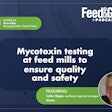
Last week, the U.S. Environmental Protection Agency released delayed proposed biofuel blending volumes under the Renewable Fuel Standard (RFS).
The agency proposed an increase in the total biofuel blending requirement for 2022 of 22.77 billion gallons, which allows for an implied ethanol volume of 15 billion gallons.
EPA also proposed to add 250 million gallons in response to a 2017 court decision, with the remainder of that 500 million gallon court remand pledged to come in next year’s rulemaking.
The proposal includes a total renewable fuel volume of 18.52 for 2021, and a 2.96 billion gallon reduction from the previous final 2020 volume requirement, the first time EPA has proposed a retroactive RFS volume reduction.
In addition, EPA proposed denial of the 65 pending RFS refinery waiver petitions. The U.S. Department of Agriculture separately released COVID assistance funding for biofuel producers that Congress approved last year and committed an additional $100 million to support infrastructure for higher biofuel blends.
National Corn Growers AssociationPresident Chris Edgington said because low-carbon ethanol replaces high-carbon gasoline and cuts emissions from vehicles, the proposed volumes for 2022 would help the Biden administration meet emission reduction commitments and lower fuel prices.
"Denying pending refinery exemption petitions and restoring gallons improperly waived in the past are important steps toward restoring RFS integrity," said Edgington. "These actions help move renewable fuels forward.
"Reopening 2020 volumes is unprecedented, however, and rewards the use of more oil at the expense of the environment," continued Edgington.
"We strongly urge EPA to move forward with finalizing the strong 2022 volumes while correcting course on the proposed retroactive cuts.”




















